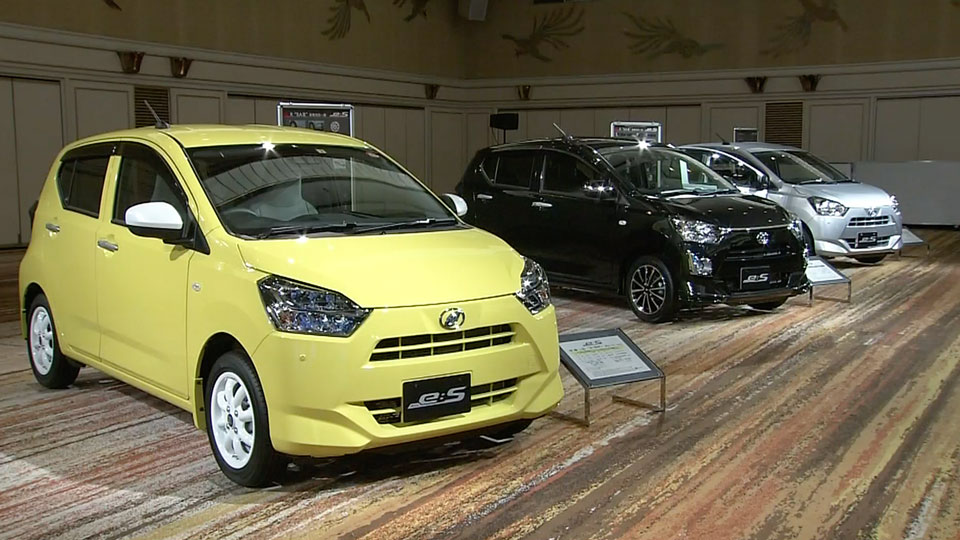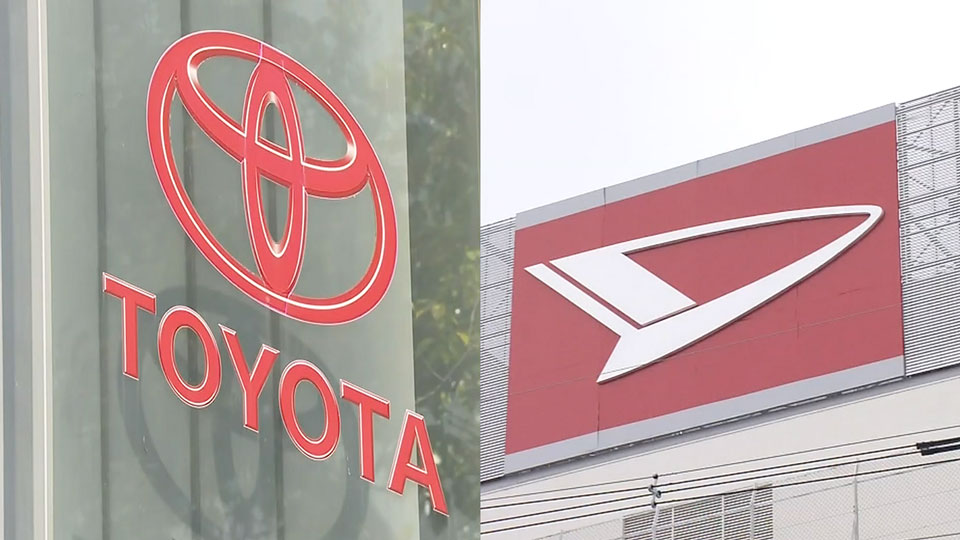Data irregularities for government certification tests have been confirmed in all 44 models Daihatsu currently produces, as well as 20 models that are no longer in production. They include cars sold under different brands such as Toyota, Suzuki, and Mazda.
Japan's transport ministry officials raided Daihatsu's Osaka headquarters on Thursday. They ordered the company to halt shipments of all vehicles now in production until the government can confirm the automaker meets certification standards.
According to private research firm Teikoku Databank, there are 8,136 companies in Japan, including affiliates, parts manufacturers, trucking companies and trading houses that conduct business with Daihatsu.
Daihatsu dealers busy responding

At a Daihatsu dealer in Chiba prefecture, staff have been busy calling customers who have ordered vehicles to apologize and explain the situation. They say they are getting some cancellations.
One woman said the car she has already paid for was supposed to be delivered next month. She says the dealer doesn't know when the car will come.
Daihatsu factory a pillar of the community
Daihatsu's Shiga factory in the town of Ryuoh makes mini-vehicles, such as the Tanto and other models, but is set to shut down starting Monday. It employs about 4,000 regular workers plus other personnel.
Ryuoh has a system that allows families living in the town to use a Daihatsu vehicle for free for three years if they meet certain conditions.

A senior Ryuoh official, Zushi Akinori, says safety is a prerequisite, so he hopes that the safe operation of Daihatsu vehicles will be confirmed so that the system of lending cars can continue.
Japan's certification system
A safety screening process is required before new models can be produced and sold in Japan. Various tests, such as collision and exhaust emissions, are conducted.
An independent third-party panel's report on Daihatsu says timers were used in airbag tests, even though the verification should have been conducted using sensors that detect the impacts that trigger the deployment of airbags.
In collision tests, there were cases where data on the passenger side was used instead of the driver's side.
Executive Manager of Daihatsu's Corporate Management Group Ide Keita said on Thursday that his company will cooperate and work to restore trust as soon as possible.
Japan's top seller of mini-cars
Last fiscal year, Daihatsu topped the sales of new mini-cars with 33.4 percent of the Japanese market.
The automaker became a full subsidiary of Toyota Motor in 2016 and began supplying more vehicles to Toyota from around that time. It also supplies Subaru and Mazda Motor.
The market for Daihatsu vehicles is also expanding overseas, especially in Southeast Asia. The automaker says it will be speaking with public officials in each of those countries to discuss what it will do going forward.
One Thai fan of Japanese cars says he's surprised. He says he had thought that Japanese vehicles were safe, but this view collapsed with the news of the data scandal.

Short development times could have led to errors
Daihatsu Motor President Okudaira Soichiro said on Wednesday that the company had not fully understood the strain its workers were under. He said that created a workplace environment and culture in which workers were unable speak out when they were in trouble.

Developing new models in a short period has been seen as Daihatsu's strong point, but the third-party panel pointed out that one of the factors for the safety test errors was this fast-tracked development time.
Daihatsu launched the popular Mira e:S model in 2011. It was developed much more quickly than previous models.

This success prompted the company to push employees to develop new models faster. Under intense pressure, engineers are believed to have falsified data.
Errors continued even after becoming Toyota subsidiary
Daihatsu continued the accelerated development of models even after it became a fully-owned subsidiary of Toyota in 2016.

Despite a shortage of personnel, Daihatsu became involved in Toyota's overseas production projects, which increased the number of Daihatsu's production sites outside Japan, as well as the number of countries it shipped its products to.
Toyota Motor Vice President Nakajima Hiroki said on Thursday that his company had not been aware that Daihatsu's increasing supply of vehicles to Toyota may have worsened the burden on Daihatsu workers.

Expert: Toyota bears responsibility
Auto industry expert Sugiura Seiji said Daihatsu may have wanted to demonstrate its competence to Toyota, and this brought intense pressure to Daihatsu employees. He also said the data irregularities may have been accepted as a habitual practice.
Sugiura said Toyota neglected to monitor the fully-owned subsidiary as it expanded its business and that the automaker Toyota bears a "heavy" responsibility.

Japan's transport ministry plans to conduct further onsite inspections of Daihatsu to learn more about the data irregularities before considering punishment.
